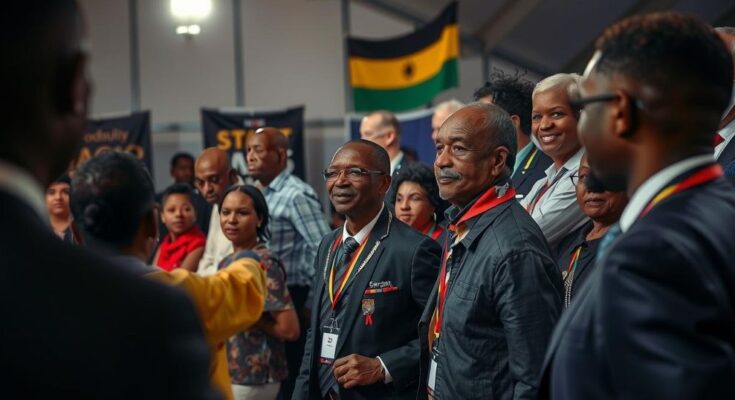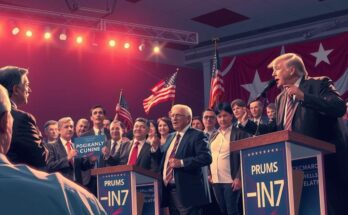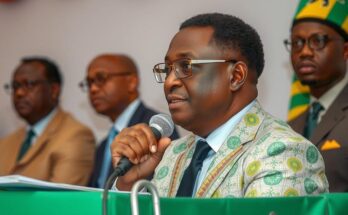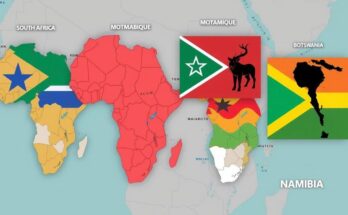Botswana is facing a critical election that will determine whether the Botswana Democratic Party, which has been in power for 58 years, continues to lead the country. President Mokgweetsi Masisi seeks reelection amidst rising economic challenges, particularly the downturn in diamond demand which has increased unemployment to 27%. Three opposition candidates are vying for the presidency, and the election results will be of significant importance for Botswana’s future governance and economic policy.
Botswana is currently undergoing a pivotal election that will determine whether the Botswana Democratic Party (BDP), in power for the past 58 years since the nation gained independence from Britain in 1966, will continue its governance for another five years. The BDP, led by President Mokgweetsi Masisi, is facing scrutiny as the elections approach, amid economic challenges including a significant downturn in diamond demand, which has historically underpinned Botswana’s economy. The polls opened on Wednesday, October 30, 2024, and voters are tasked with selecting their parliamentary representatives, who will subsequently elect the president. President Masisi, who previously worked as a high school teacher and at the United Nations, is seeking reelection for a second and final term. Despite Botswana’s reputation as a successful democratic state, recent economic turmoil has led to increased unemployment, particularly among the youth, now estimated at 27%. Amidst this backdrop, the BDP has acknowledged the need for policy adjustments to diversify the economy, which currently relies heavily on diamond exports—accounting for over 80% of the nation’s exports and a quarter of its GDP, according to the World Bank. Masisi faces three challengers: Duma Boko from the Umbrella for Democratic Change party, Dumelang Saleshando of the Botswana Congress Party, and Mephato Reatile from the Botswana Patriotic Front. The results from the election, anticipated to be finalized within days after the polls close, could signify a critical shift in the political landscape of Botswana, especially given the rising dissatisfaction with the BDP’s handling of economic difficulties. The BDP intends to pivot towards empowering the agriculture and tourism sectors while enhancing the processing of mineral resources to create new revenue streams. A million citizens have registered to vote in this election, a key aspect given Botswana’s geographical characteristics, including vast areas of the Kalahari Desert. This election also has implications for President Masisi’s strained relationship with former President Ian Khama, who has rallied against him since leaving the BDP in 2021 amidst allegations of authoritarianism that Masisi allegedly employed against him. The outcome of this election will not only determine the future of the BDP and its leaders but also the direction of economic policy and governance in Botswana as it confronts pressing challenges.
Botswana, a southern African nation, has been praised for its stability and democratic governance since its independence from Britain in 1966. The BDP has dominated the political scene for nearly six decades. The country’s economy is significantly dependent on diamond mining, making it vulnerable to global market fluctuations. Recent downturns in diamond demand have instigated economic hardships, prompting the BDP to reassess its policies. With unemployment rising and the economic landscape shifting, the upcoming elections present a crucial opportunity for voters to influence the country’s direction and governance amidst these challenges. The political rivalry between President Masisi and former President Khama adds further complexity to the election dynamics, especially as Khama seeks to unseat Masisi via a rival party.
In conclusion, Botswana’s current election is of profound significance as it poses the question of whether the BDP will maintain its long-standing grip on power amidst increasing economic challenges. As citizens prepare to cast their votes, the potential for change in political leadership and economic direction hangs in the balance, with implications not only for the immediate future of Botswana but also for the country’s democratic integrity. With President Mokgweetsi Masisi seeking reelection, the involvement of outspoken opposition leaders indicates a possible shift in governance in response to the growing demands of the electorate.
Original Source: apnews.com




